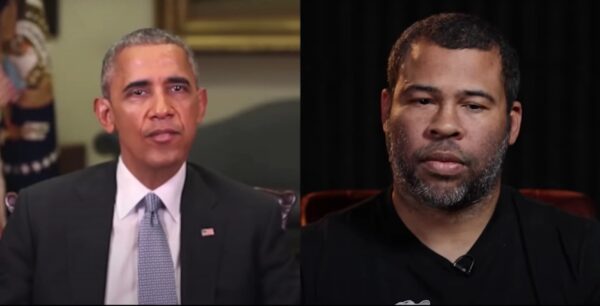In Texas, deepfake is not explicitly illegal. However, it can be considered a violation of specific laws such as defamation and fraud. Creating and distributing deepfakes intending to harm or deceive others may lead to criminal charges. In addition, using someone’s likeness without their consent can also result in legal action. Therefore, it is essential to use caution when creating and sharing deepfakes in Texas.
Table of Contents
What is a Deepfake?

A Deepfake is a type of synthetic media that uses advanced technologies such as artificial intelligence and machine learning to manipulate or alter existing videos or images. It involves creating realistic-looking fake footage of people saying or doing things they never actually did. These techniques can be used for various purposes, from harmless entertainment to malicious propaganda.
The term “deepfake” stems from the combination of “deep learning” and “fake,” referring to the deep neural networks used in the creation of these falsified media. It has raised concerns about the potential for widespread misinformation and deception in the digital age.
Deepfakes in Texas: What Are They and Are They Illegal?
Deepfakes in Texas are digitally manipulated videos or images that use artificial intelligence to replace one person’s face with another. They have become increasingly prevalent in social media and can be used maliciously, spreading false information or defaming someone’s character.
While no specific laws currently address deep-fakes in Texas, they may still be considered illegal if they violate existing laws, such as those related to defamation or privacy.
What Other Crimes Can Stem from Deep-fakes in Texas?
Deepfakes, or manipulated media that appear to be authentic, have the potential to cause serious harm in Texas. In addition to the aforementioned crime of impersonation, deep fakes could lead to identity theft and financial fraud. They can also be used to create fake evidence in criminal cases, resulting in wrongful convictions. Furthermore, deep-fakes can be used for blackmail or extortion, as well as for spreading false information and inciting violence.
- Identity theft
- Financial fraud
- Creating fake evidence in criminal cases
- Wrongful convictions
- Blackmail
- Extortion
- Spreading false information
- Inciting violence
What are the Possible Punishments for People Accused of Deepfakes in Texas?
People accused of creating or distributing deep-fakes in Texas can face serious consequences. These can include criminal charges for identity theft, cyberbullying, and defamation. If convicted, individuals may face fines, probation, or even imprisonment. Additionally, those found guilty may also be subject to civil lawsuits filed by the victims whose images were used in the deep-fake.
How Can You Spot a Deepfake?
- Understand what a deepfake is: A deep-fake is a manipulated video or image created using artificial intelligence technology that alters the original content to make it appear natural.
- Look for inconsistencies in facial expressions and movements. Deepfakes often have unnatural facial expressions or jerky movements, as they cannot ideally mimic human behavior.
- Pay attention to audio quality. Because Deepfakes use synthetic voices, They may have poor audio quality or mismatched lip-syncing.
- Check for unusual lighting or shadows: Deep-fakes may have inconsistent lighting or shadows, especially around the edges of the face.
- Look for glitches or errors: Sometimes, deep-fakes have minor glitches or errors, such as distorted features or missing pixels.
- Verify the source: If possible, verify the source of the video or image and check if it has been edited or manipulated.
- Be cautious of sensational content: Deep-fakes are often used for sensational purposes, so be wary of videos or images that seem too good (or bad) to be true.
- Use fact-checking tools: Various fact-checking tools are available online to help identify deep-fakes by analyzing metadata and other visual elements.
- Seek expert opinions: If you are unsure about a video or image’s authenticity, seek expert opinions from media professionals or technology experts specializing in detecting deep-fakes.
- Stay informed and vigilant: As technology advances, so do deep-fake techniques. Stay current on this issue and always approach online content skeptically to avoid falling for fake information.
Frequently Asked Questions on Deepfake?
Do you need a deep-fake law attorney?
In today’s digital age, the rise of deepfakes has become a concern for many individuals and companies. These manipulated videos and images can cause severe damage to one’s reputation and privacy.
As such, seeking legal guidance from a deep-fake law attorney specializing in this emerging field is important. Their expertise can help you understand your rights and take necessary actions against those who use deepfakes for malicious purposes. It is always better to be proactive rather than reactive when protecting yourself from the potential harm of deepfakes.
In what states are deepfakes illegal?
In the United States, deep-fakes are currently illegal in California, Texas, Virginia, and New York. However, there are no federal laws explicitly targeting deepfakes. Some states, such as Virginia and Texas, have passed legislation that criminalizes the creation and distribution of deep-fakes with malicious intent.
Other states may have existing laws that can be applied to cases involving deep-fakes, such as identity theft or fraud. Individuals need to familiarize themselves with their state’s laws regarding deep-fakes to avoid potential legal consequences.
Final Thoughts
In conclusion, while deep-fake is not explicitly illegal in Texas, it can potentially violate laws related to defamation and fraud. Using caution when creating and sharing deepfakes is crucial, as using someone’s likeness without their consent can lead to legal action.
As technology advances, the laws surrounding deep-fakes may also become more defined. In the meantime, individuals should be mindful of the potential consequences before creating and distributing deepfakes in Texas.
